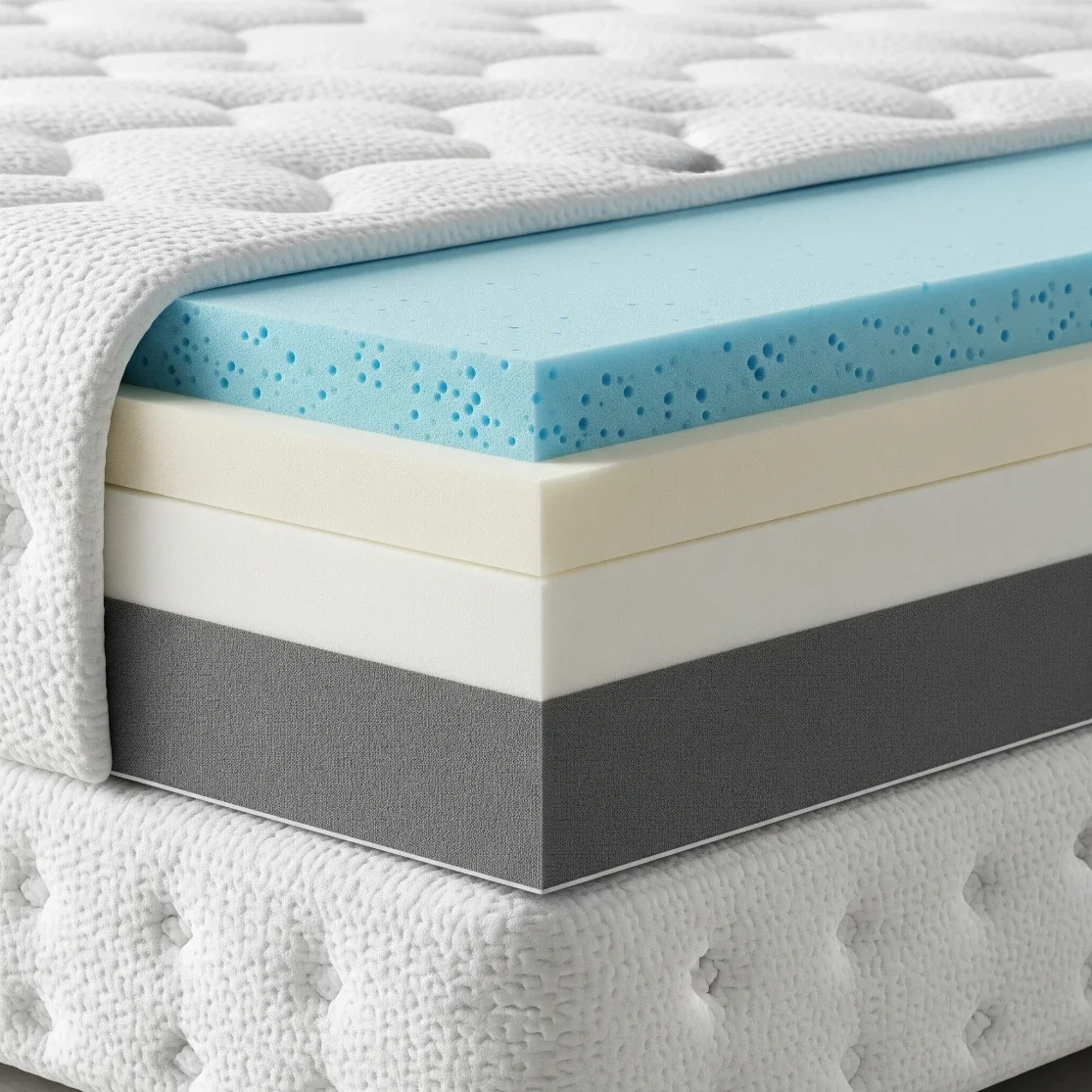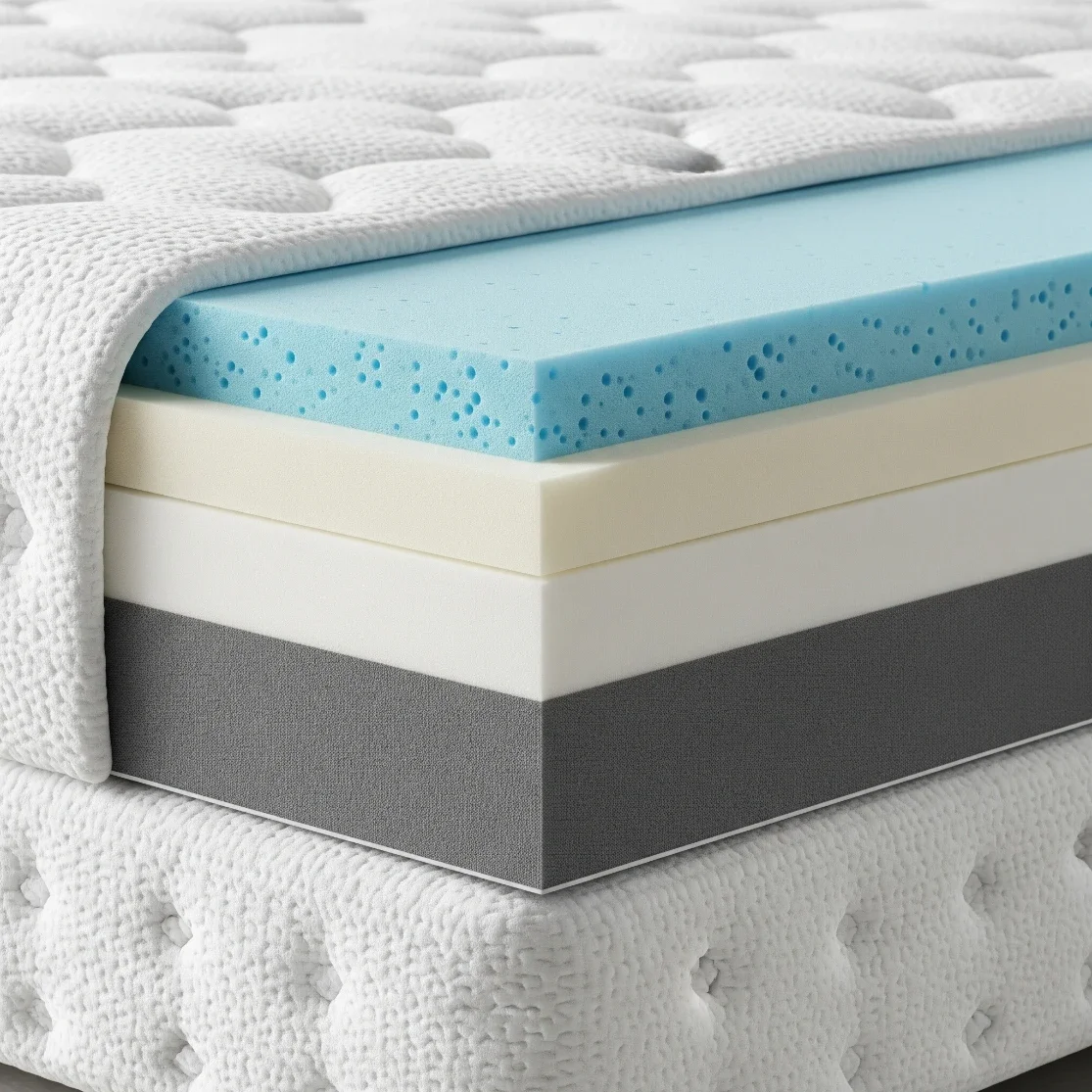How Long Does a Foam Mattress Last?
Find out how long a foam mattress lasts, what affects its lifespan, and tips to keep it supportive, comfortable, and in great condition longer.
Dearest groundhog, if your back is killing you, you wake up sore, or your foam mattress is lumpy, it might be time for a change. But how long does a foam mattress last?
Just because it doesn’t have an expiration date doesn’t mean it can last forever. No matter how well-made it is, a mattress's lifespan isn't infinite and depends on its materials, layers, and how much you use it.
And that's exactly what we're going to talk about in this article: how long a foam mattress lasts.
What is a Foam Mattress?
A foam mattress isn't a mattress made of soap suds. It's actually a term for a mattress with a construction that traps air within its material. That trapped air, in turn, provides counter-pressure when a force is applied (when you lie on it or are on top of it), giving it a comfortable and soft effect.
In general, a foam mattress is more suitable for people who prefer to sleep on their side because of its ability to conform to the body's shape. Of course, if you like to sleep on your stomach or back, you can still choose a foam mattress, as they generally always provide comfortable counter-pressure.
What is the Average Lifespan of a Foam Mattress?
High-quality foam mattresses can usually last up to 8 years. A small number might even last up to 10 years with the same "intensity of use." Compared to other types of mattresses, foam mattresses are among the most durable. This is an important factor in why they're so popular. However, low-quality foam mattresses typically only last about 5 years or less. However, if we measure the average life of a mattress, 6-7 years is a common estimate.
Why do some mattresses last up to 10 years while others last less than 5? The answer lies in the quality, as well as the usage factors. But what determines quality?
The material it's made of, of course. Good mattress materials will produce good quality mattresses. Good quality means a longer lifespan; it's as simple as that.
How to Know When to Change Your Mattress
To change the mattress or not to change the mattress, that is the question!
You’ve probably wondered at some point if your bed is still in good condition or if you should start thinking about replacing it. Because, even though you’ve heard that a mattress's lifespan is around ten years, you have your doubts.
Aside from its age, there are signs that can give you a hint about the condition of your sleeping system, regardless of how old it is. Let’s get into them.
1. Waking Up Tired
As we mentioned in the post about the scientific keys to not waking up tired, sometimes we wake up feeling like we haven't slept a wink, even if we’ve gotten the recommended hours of sleep.
And the opposite also happens: you've had an exhausting day, you've been looking forward to bedtime all day, and when the long-awaited moment finally arrives, you can't fall asleep!
You just toss and turn in bed, and nothing.
Well, beware, it's very likely that your mattress isn't helping you rest.
2. Back Pain
It's been proven that one of the main causes of insomnia is back pain while in bed.
This could be because you haven't chosen the right type of mattress for your needs, your sleeping posture is hurting you, or your mattress is no longer in good condition and is misaligning your spine.
We'll just leave that there.
3. The Mattress Is Deformed or Sunken
One of the most important indicators for when to replace a mattress is if it has lost its original shape.
Think about it: with use, the weight of your body wears down the materials in the area where you spend most of the night. It slowly starts to sink, the top layer fabric gives way, and its firmness goes out the window.
In short: if you see the imprint of your body on the mattress, it's time to say goodbye.
4. The Seams or Top Layer Are Torn
If for whatever reason the seams that join the different layers of the mattress come undone, or the surface tears, leaving the inside exposed, we regret to inform you that it's not possible to repair it.
You may have heard that you can reupholster it, sew it, or put a mattress topper on it, but this is a classic example of "a quick fix" that we don't recommend because you'll just end up spending money twice.
Don't hesitate: you need to buy a new one.
If you still have any doubts, here's the ultimate test to know when to replace your mattress.
The Ultimate Quiz to Know How Long Your Mattress Lasts
Answer these questions honestly:
- Is your mattress more than ten years old?
- Do you rest worse now than you did a few years ago in the same bed?
- Have you recently slept better in a bed that isn't yours?
- Do you wake up feeling exhausted?
- If you sleep with a partner, do you both roll towards the center of the bed?
- Is the surface of your bed torn, ripped, or does it have sagging fabric?
- Would you be embarrassed if someone who wasn't a family member saw your mattress without a cover?
If the answer to any of these is yes, you know what you have to do.
Conclusion
How long a foam mattress lasts is influenced by various factors, with material quality, usage, and moisture being the main ones. By buying a mattress made from high-quality materials, using it correctly, and keeping moisture levels optimal, you can expect 8 to 10 years of use. In any case, increasing the life expectancy of a mattress is possible.







